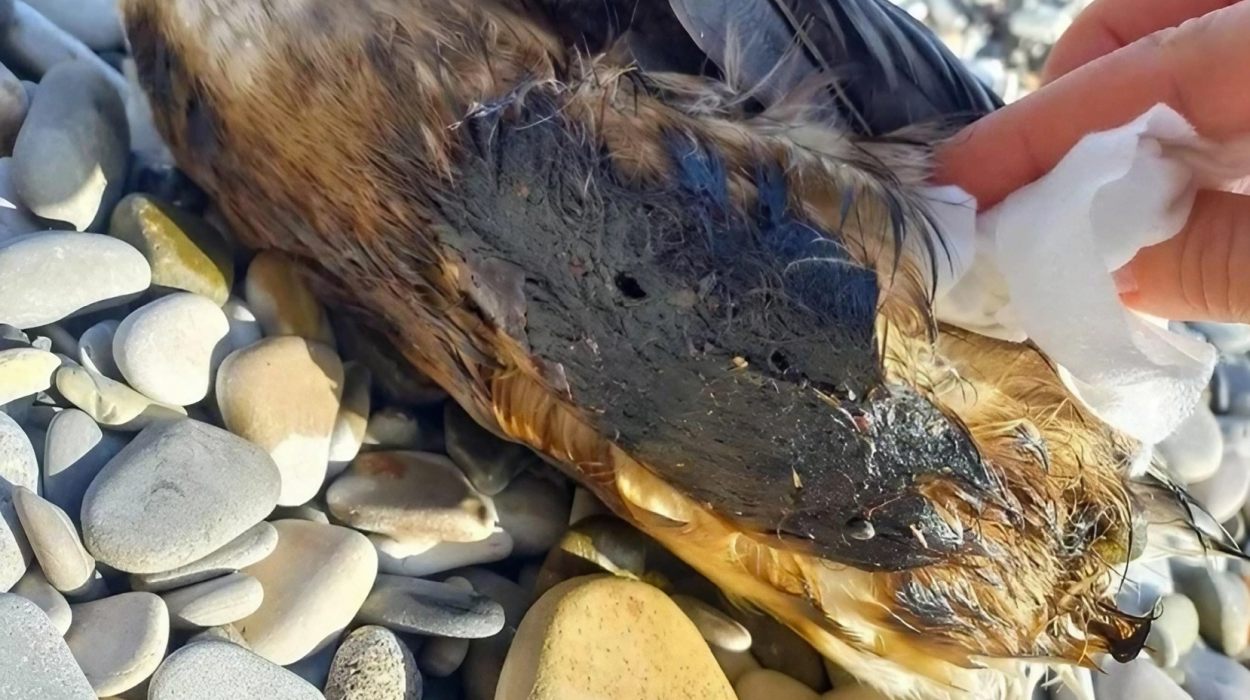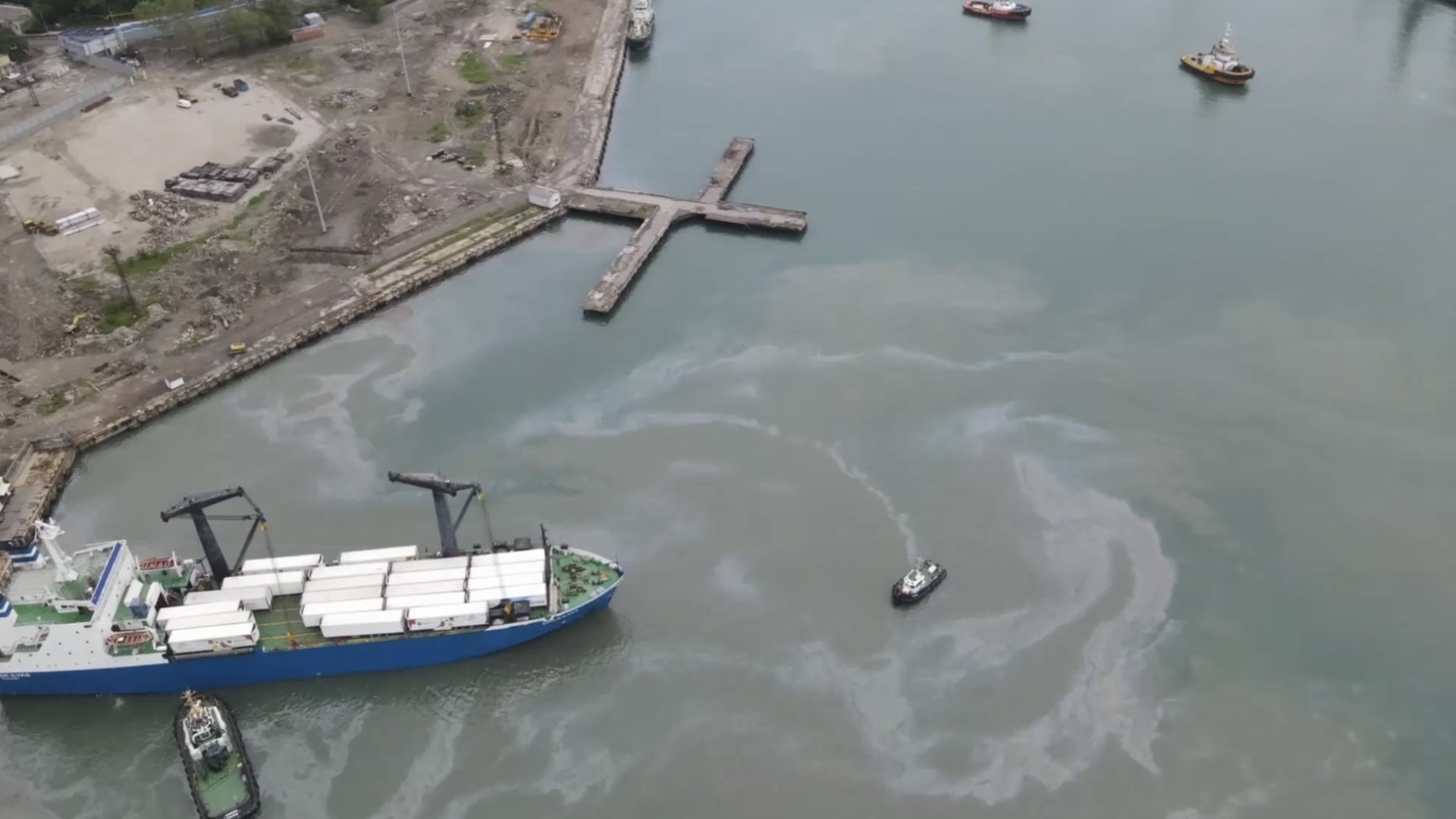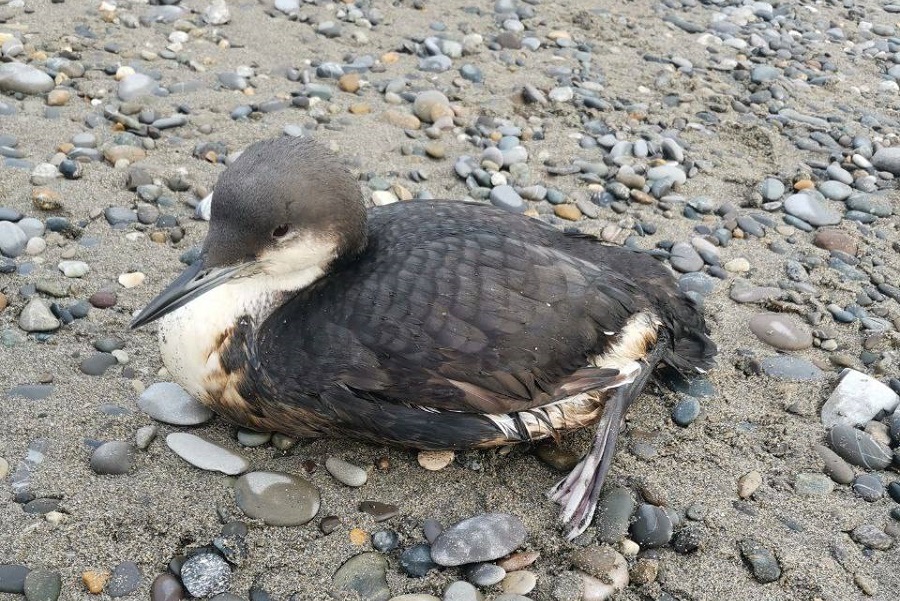Ecologists Warn of Ongoing Oil Pollution in the Seas of Tuapse and Sochi

The feathers of the birds found on the beach in Tuapse are completely covered in oil.
SUKHUM / AQW'A ― Ecologists have commented on the recent reports of oil pollution in the sea in Tuapse and Sochi, which have caused concern among local residents.
On March 1st, wild birds covered in oil products were found on the beaches of Tuapse and Sochi. Ecologist Evgeny Vitishko has assumed that the pollution occurred in the Tuapse district.
According to Valery Brinikh, director of the private institution Institute for Regional Biological Research, pollution of the sea with oil products, which periodically occurs in the Krasnodar Territory, poses a threat to both animals and people. The oil film lasts a long time, and vacationers can suffer from it during the swimming season. The cleaning process for birds stained with oil is also challenging, and if there are a large number of individuals, it becomes impossible to clean them all. These concerns were voiced by Vasily Yablokov, head of the Climate and Energy Department of the Russian branch of Greenpeace.
Valery Brinikh noted that it is quite typical for Tuapse and Sochi to experience such incidents since there is an oil refinery and an oil loading port in Tuapse. As a result, a portion of the oil spills into the sea. Local environmental organizations in Tuapse and Sochi are too weak to deal with the issue, he added.

Oil pollution in the Black Sea near Tuapse has been repeatedly reported since 2018, according to the World Wildlife Fund (WWF).
Vasily Yablokov highlighted the danger to holidaymakers since the main threat from pollution is that the sea may remain covered with an oil film, making it impossible for people to swim. He also explained that self-purification of the sea from ongoing pollution is impossible.
Yablokov referred to the manual "People, Oil, Birds. A Review of World Experience in Rescuing Birds from Oil Pollution," which identifies four degrees of oil pollution of birds. If the number of affected birds exceeds several thousand individuals, the efficiency of laundering them for further release into the wild, even with a well-established system of rescue and rehabilitation centers, is inevitably quite low, according to the manual.
The environmentalist emphasized that cleaning birds from oil is an extreme measure. Prevention of oil spills is the zero step, followed by the localization of the stain and scaring away the birds so that they do not get dirty in oil. If washing the birds becomes necessary, it should be done with plenty of warm water and dishwashing detergent, he added.

Local residents and volunteers trying to save the birds.
In addition to birds, the fish in the polluted sea is also a concern. When the fish is seriously polluted, it is poisoned by harmful substances, and it is dangerous to eat it. Ecologists stress that everything depends on the level of exceeding the maximum permissible concentrations of harmful substances, which must be determined by laboratory methods before allowing it to be eaten.
Oil spills periodically occur in the Black Sea in the Krasnodar Territory. For instance, a high alert mode was introduced in Tuapse in May 2021 after an oil spill in the sea. The source of pollution was a deep-sea collector 700 meters from the coast, according to the Ministry of Emergency Situations.